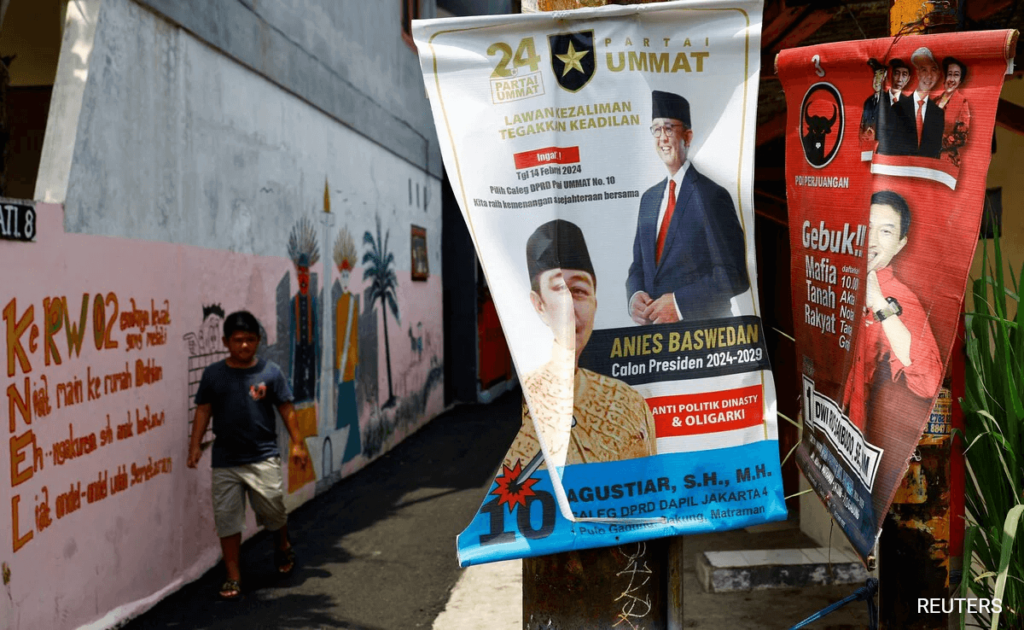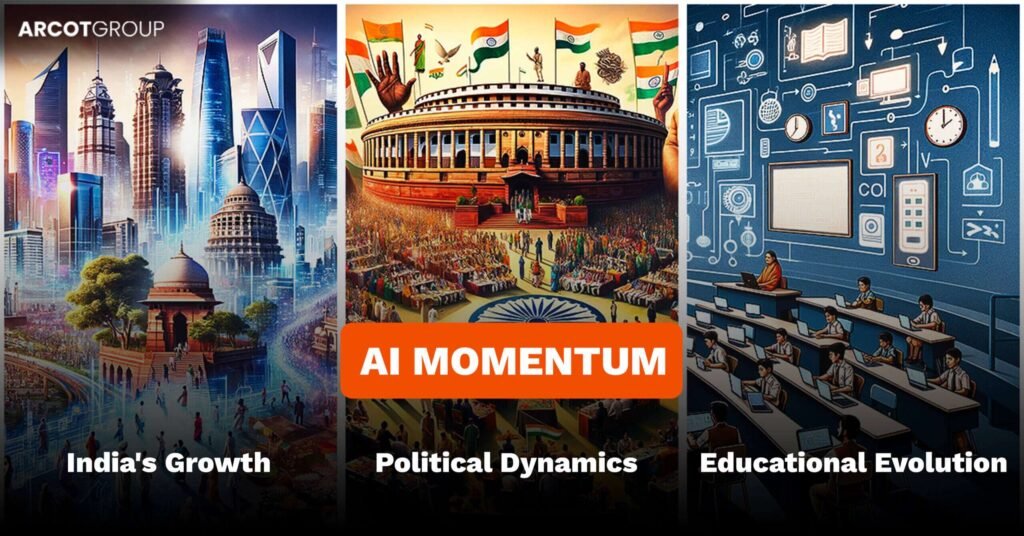India’s AI Leap: Paving the Way for Growth

In an era marked by rapid technological evolution and geopolitical complexities, India stands on the cusp of a remarkable economic transformation, fueled by its strategic embrace of artificial intelligence (AI). Esteemed industry leaders, including Bill Winters from Standard Chartered Bank, Ravi Kumar S from Cognizant, Jenny Johnson from Franklin Templeton, and Rizwan Sajan from Danube Group, recently shed light on this pivotal shift during a thought-provoking panel discussion.
Bill Winters highlighted India’s dynamic growth potential, emphasizing the nation’s current trajectory to surpass the steady 6–6.5% growth rate. His optimism is echoed by the International Monetary Fund’s (IMF) projection, which anticipates a 7.3% growth spurt for the Indian economy in FY24, followed by a stabilization at 6.5% in subsequent years. This forecast is not just a testament to India’s resilience but also to its strategic foresight in leveraging AI as a cornerstone for future development.
India’s journey is distinguished by its robust digital infrastructure, which has laid the foundation for an inclusive data economy. With an unprecedented volume of data at its disposal, India is uniquely positioned to harness AI, transforming it into a creator and innovator on the global stage. The nation’s approach to AI integration, characterized by inclusivity and innovation, sets a benchmark for others to follow.
As the world grapples with the disruption brought about by AI and other emerging technologies, India’s story offers a beacon of hope and a blueprint for sustainable growth. The panel’s insights serve as a clarion call to the global community, highlighting India’s ascent as a leader in the digital age, poised to redefine economic paradigms through the power of AI. SOURCE
TikTok Battles: Indonesia’s Electoral Dance

In the vibrant political landscape of Indonesia, the electoral strategy has taken an innovative turn with the embrace of TikTok, reaching out to the nation’s youth, where over half of the approximately 205 million registered voters are young. The platform, boasting 125 million users in Indonesia, trails only behind the United States in its user base, becoming a crucial battleground for political engagement.
During a campaign event, the enthusiasm of young voters like 22-year-old Irene Putri Aisyah was palpable as she shared snippets of the event on TikTok, from catchy dance routines to engaging cooking demos. This digital engagement underscores the candidates’ strategic pivot to TikTok to resonate with the younger demographic.
However, the digital arena is not without its challenges. Experts warn of the deluge of misleading content that permeates the platform, potentially skewing the perceptions of young voters. Amidst this, Prabowo Subianto has redefined his image, transitioning from a formidable military figure to a more relatable, even endearing, public persona. His dance videos, drawing inspiration from traditional martial arts, have become viral sensations, prompting a wave of imitations and solidifying his presence in the digital domain.
The political discourse on TikTok extends beyond entertainment, with frontrunners like Anies Baswedan and Ganjar Pranowo leveraging live sessions and heartfelt video narratives to connect with voters on a personal level. Anita Wahid, a researcher, emphasizes TikTok’s significant influence on first-time voters, highlighting its role as a key platform for political campaigning and information dissemination.
Amidst this digital engagement, TikTok has risen as a primary source of political information, second only to television, reflecting its growing influence on the political narrative in Indonesia. Yet, the platform’s commitment to mitigating misinformation remains crucial, as it navigates the complex terrain of political discourse, aiming to safeguard the integrity of the electoral process while fostering a space for creative expression.
This digital shift in political campaigning underscores a broader trend where technology and social media are increasingly central to engaging voters, particularly the youth. As Indonesia gears up for the elections, the role of platforms like TikTok in shaping political landscapes continues to evolve, marking a new era in electoral strategy and voter engagement.
SOURCE
Redefining Learning: AI’s Impact by Coursera CEO

In an era where technology and education converge to unlock unprecedented opportunities, Coursera CEO Jeff Maggioncalda’s vision for India’s future through digital education is not just transformative but also a testament to the power of generative artificial intelligence (GenAI). As digital learning becomes the cornerstone of skill development, India stands at the brink of an educational revolution, poised to leverage GenAI in ways that could redefine the landscape of learning and economic growth.
The paradigm shift towards digital education, catalyzed by the global pandemic, has paved the way for remote learning and work opportunities, setting the stage for GenAI to emerge as a great equalizer in education. This technological advancement promises to bridge the gap between varying skill levels, making high-quality education accessible and affordable to a broader spectrum of learners. Maggioncalda’s insight into the reskilling potential of GenAI highlights a future where learning is not just about acquisition but also about adaptation and equality.
Coursera’s initiative to democratize education through technology has seen remarkable strides, with the platform translating over 4,200 courses into approximately 20 different languages. This monumental reduction in translation costs, from $10,000 to a mere $20 per course, exemplifies the profound impact GenAI can have on breaking language barriers and enhancing global accessibility to quality education.
India’s vibrant learner base on Coursera, second only to the United States, underscores the nation’s burgeoning appetite for online education. With 23.4 million Indian learners engaged in Coursera’s diverse offerings, the country is on a fast track to becoming a global leader in digital learning. This surge in online education is a critical factor in achieving the ambitious goals set by the National Education Policy 2020, aiming to elevate the gross enrolment ratio to 50% by 2035.
In response to the evolving demands of the workforce and the global economy, Coursera has launched specialized academies focusing on GenAI and career development. These initiatives are designed to equip businesses and individuals with the skills necessary to navigate the future, emphasizing the agility and adaptability of talent in seizing new opportunities.
Maggioncalda’s vision for India, fueled by the transformative potential of GenAI in education, offers a glimpse into a future where digital learning is the key to unlocking the nation’s economic and social potential. As companies globally turn to India for their future workforce, the fusion of technology, education, and talent agility heralds a new era of growth and opportunity, positioning India at the forefront of the digital education revolution. SOURCE
Further Reading & References
Next-Gen Breakthroughs: AI’s Bold Leap into Music, Robotics, and the Future of Search Technology
AI Daily News: Charting New Territories in Education and Predictive Technologies
Navigating the AI Revolution: The Dawn of the Galaxy S24 and BeyondThe Future Unveiled:
